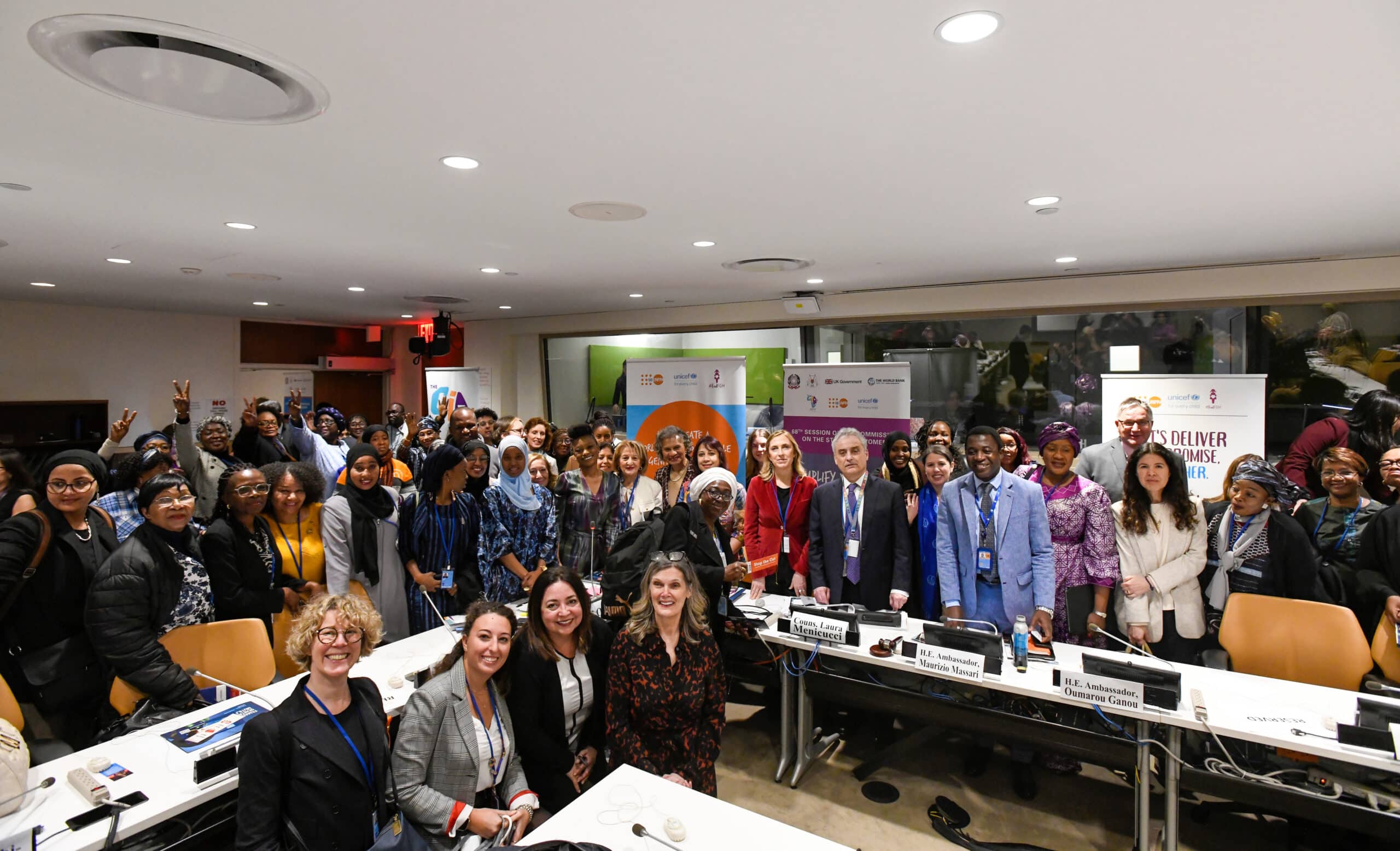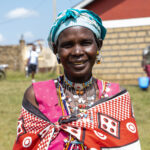As we honour International Women’s Day, we pause to acknowledge the profound impact women have in shaping our world. This connection holds particular significance as we reflect on our role at the Commission on the Status of Women (CSW), a vital platform where global leaders converge to discuss gender equality and women’s empowerment.
At CSW68, with its priority theme of “Accelerating the achievement of gender equality and the empowerment of all women and girls by addressing poverty and strengthening institutions and financing with a gender perspective,” the words of U.N. Secretary-General António Guterres during the opening ceremony resonate deeply. “Patriarchy is far from vanquished,” he declared. “It is regaining ground. Autocrats and populists are attacking women’s freedoms and their sexual rights. They promote what they call ‘traditional’ values.” In response, our programme design works towards a world where girls and women can exercise their power and rights and be free from all forms of violence.
Our inaugural session on Financing the Elimination of Female Genital Mutilation/Cutting (FGM/C) on 12th March convened a global gathering, drawing participants from diverse backgrounds. Representatives from governments including the UK, Italy, Guinea, and Burkina Faso, as well as delegates from the World Bank, UNFPA, UNICEF, and courageous survivors from Kenya and Guinea on the panel.
A key takeaway from this session was the urgent need to sustain support for survivors leading the charge against FGM/C and grassroots organizations. It’s imperative to equip them with the necessary leadership skills, grants, and funds to bolster their efforts, given their significant contributions and established connections within communities.
This session provided an excellent opportunity for TGG-ALM to speak and showcase the Grants aspect of TGG-ALM, including global goods on TGG-ALM Grants and SLT evaluation.
Watch the video here
In our 2nd session on Empowering Voices: Girl-led Approaches to End FGM/C on 14th March, we were delighted to be joined by esteemed guests: Wisal Ahmed, the Global Coordinator of UNJP; Jenipher Jere, Founder and Director of the Foundation for Children’s Rights in Malawi; Ugbad Ahmed, Programme Manager for NAFSI in Somaliland; Amran Ali, a Community and Youth Activist from Kenya; and our dedicated colleagues from TGG-ALM- Dorothy, Teresia and Faty Kane from ActionAid.
The key insight from this session highlighted the significance of involving girls and young women in every stage of program development, implementation, and evaluation. This inclusive approach transforms programs from theoretical concepts to practical solutions in the fight against FGM/C. It also provided TGG-ALM with a platform to showcase and share our best practices developed through the Girl-Centered Framework.
The 3rd event, #ClosingTheFundingGap on 15th March, was spearheaded by Orchid Project and featured partners from USAID, Global Affairs Canada, the Global Wallace Fund, and the Global Platform to End FGM/C. The discussions were centered around addressing the critical issue of closing the funding gap.
Key takeaways emphasized the necessity of organizing a Global Commitment Summit to secure the resources needed to #EndFGMC. It was underscored that beyond increasing funding, it is equally vital to utilize funds efficiently, ensuring they are allocated cost-effectively and sustainably.
As we continue our journey toward gender equality, let us amplify the voices of women and girls, support survivors, and work together to eradicate FGM/C and empower all women and girls worldwide.
Some of the voices from the panelists:
“Gupta from UNICEF underscored the urgency: Recent data reveals a 15% increase in #FGM worldwide. Elevating the voices of survivors is paramount to safeguarding every girl’s right to grow free from violence.”
Amran, a survior and champion despite facing harsh judgment bravely defies cultural norms to advocate against #FGM. “I’m glad to witness girls spared from what I endured. Survivor voices are essential in the fight to #EndFGM.”
Oumua, a survivor from Guinea highlights the transformative power of survivor solidarity: “Our shared experiences brought us together to drive change against #FGM in our communities. Recognizing and addressing the unique needs of survivors is crucial.”
We empower girls to lead school forums using co-designed manuals, as we believe they hold the solutions to their own needs. Through comprehensive reviews, we ensure their voices drive leadership and safe spaces.” – Teresia Warui, Programmme Cooridnator ActionAid
Too often, girls’ involvement in programs is seen through a lens of protection, which can limit their participation in program design, implementation, and evaluation.” – Jacinta Muteshi.
Stephanie from USAID emphasizes the U.S. government’s commitment to #EndFGM as violence against women and girls. “We employ evidence-based interventions and mapping tools to empower local organizations to reach those most affected.”
Sharon from Canada Development underscored the importance of collective efforts and support in ending #FGM.’ This includes engaging leaders, men, and boys as allies, and fostering open dialogues towards our shared goal.


